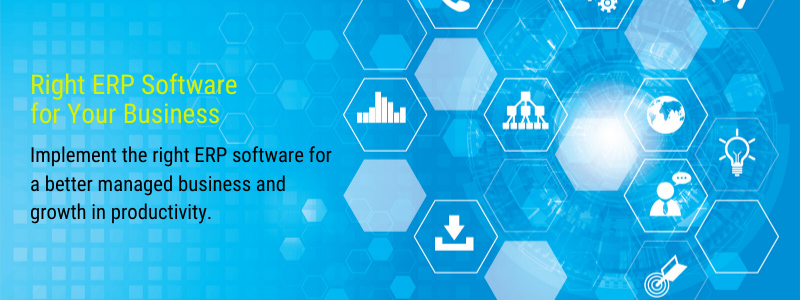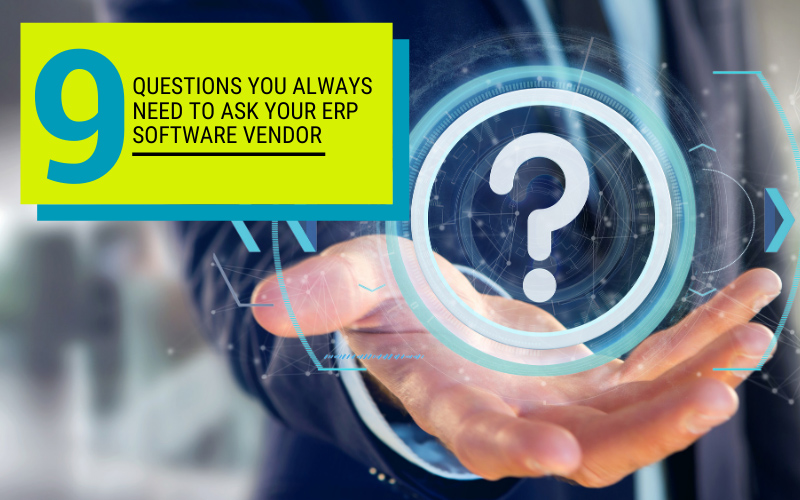But, how are you’re going to find out who is the ideal service provider for you?
Before diving right into choosing an ERP vendor, take the time to understand what they offer. This process is complex and requires a thorough research.
In this post, we’ll make it simple for you.
So, let’s get started and go over the questions you always need to ask your ERP software vendor before employing them.
Does Your ERP Vendor Understand your Business Requirements and How Their Solution Aligns with your Challenges?
Your supplier’s insufficient knowledge makes you encounter situations where unnecessary, incorrect functionalities being added to your ERP system and issues that trigger confusion.
On the contrary, choosing a vendor who has an in-depth understanding of your industry requirements will help you get a business-specific solution, speed-up the deployment process, and be more cost-effective.
Is the ERP System Easily Integrated with Other Applications?
Once you have an ERP system, it becomes the backbone of your business operations management. Therefore, it is important that you consider the software that has the potential to integrate with other systems that are currently in use.
However, if you select an ERP solution that is unable to complement the applications you are using could result in unnecessary data transferring costs and complications. This can even retard the benefits you are going to acquire from your new ERP implementation.
Is the ERP System Scalable Enough to Support Your Expansion Plans?
ERP implementation is a long-drawn process. It’s not just a software that is deployed, but a platform and technology innovation to aid your business excel over time.
Hence, your system needs to have advanced features to make it future-ready. Scalability is one such functionality. Being scalable provides your ERP with the provision to expand as your business grows. A minor non-disruptive upgrade is sufficient to enable it to support the additional volume of users and data.
Whereas, ERP software that is not scalable needs to be replaced with a new one and is also accompanied by the disruptions and difficulties of the implementation process.

What are the Deployment Models the Vendor Provides?
Consider, you need an ERP suite that is partly implemented on cloud and part on-premises, but your ERP vendor is able to provide any one of these deployment models.
This can disturb your business approach. Ultimately you will be influenced by lesser functional requirements and cost strategies, which lead to higher expenses and even affect your business growth plans.
This connects you to the need of knowing the deployment models of your vendor beforehand and save yourself from inept situations.
How Long the Vendor Has Been in This Business?
The major benefit of warehouse management systems in supply chain and logistics businesses is the ability to detect the issERP implementation is a complex and many a times an unpredictable undertaking. This is why any ERP consultant you hire must be proficiently experienced in deploying business solutions, preferably for similar kinds of businesses as yours, so that they are well equipped to handle any issues that may arise.
How Long Does the ERP Implementation Take?
The duration of ERP implementation varies based on the type/ size of your business and software you choose. If your vendor has a defined and accurate plan for every stage of the deployment process, it can be successfully completed within the proposed scheduled timeline.
“Owing to the complexities and external dependencies of the ERP deployment process, the majority of the projects experienced schedule overruns.”
What Levels of Support Your Vendor Provides Prior to, During, and After ERP Software Deployment?
Getting support from your ERP vendor is crucial, especially during the deployment of the software.
This is necessary to ensure every stage of the deployment process, starting from the system back-ups to smooth running of system must be planned well and executed as close as possible to the agreed time-frames.
Hence, it is vital to establish an agreement with the software vendor regarding the level of support they require to provide for various issues that may arise within the defined tenure.
Is the ERP Software Customizable?
Customization gives you the freedom to select and include only the modules that are required to manage your business operations. This is a cost-effective variant. Instead of paying for the whole ERP suite with unnecessary tools, you are allowed to buy what you need.
The system becomes lesser complex and so handling it also becomes easy.
Does the ERP Support Multiple-languages?
When you have a business presence across the globe, you need an ERP system that supports multiple languages. This allows your employees to access the system in their native language.
All-in-all, it’s not hard to select and deploy the right ERP system if you strategically plan your approach and take guidance from technical ERP experts. Click here to get in touch with our consultants who can help you in choosing the right ERP solution and throughout the entire implementation process.









